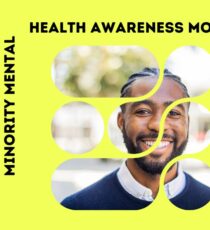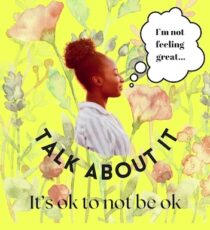
We’re all aware that witnessing racial trauma such as the murder of George Floyd on video or exposure to media coverage of consistent police violence and injustices including the murder of Michael Brown, Trayvon Martin, Elijah McClain and Breonna Taylor and many more causes emotional distress. But what about the daily exposure to racism and inequity? How does that impact the mental health and wellbeing of Black Americans over time?
Studies have shown that consistently experiencing racial discrimination can have a significantly negative impact on the mental health and well-being of African Americans. Discrimination is not only one of the biggest causes of depression and anxiety in the Black community, but there is research from New York University that revealed it impacts aging.
In a Forbes article, Adolfo Cuevas, senior author and assistant professor in the Department of Social and Behavioral Sciences at NYU’s School of Global Public Health stated, “Experiencing discrimination appears to hasten the process of aging which may be contributing to disease and early mortality and fueling health disparities.”
The health disparities include mental health disorders.
According to the National Alliance on Mental Illness (NAMI), “Black adults in the U.S. are more likely than white adults to report persistent symptoms of emotional distress, such as sadness and feeling like everything is an effort.” Black adults living in poverty experience these symptoms over twice as much as those with more financial security.
Being consistently subjected to racism and inequities that often lead to socioeconomic barriers can not only cause stress, which can initiate a host of mental and physical health issues, but it can also cause ongoing psychological trauma including traumatic stress, anger, anxiety, depression and PTSD.
Though experiencing and witnessing racial inequities can impair one’s mental health, there are ways to cope.
A few suggestions are:
- Avoid media/social media coverage about traumatic race-based events.
- Surround yourself with a supportive network.
- Take time off work to address your mental health if you work in a culturally insensitive/unsupportive environment.
- Engage with activities that bring you joy.
- Find ways to feel empowered in your life.
- Seek culturally competent mental health care.






Social Menu